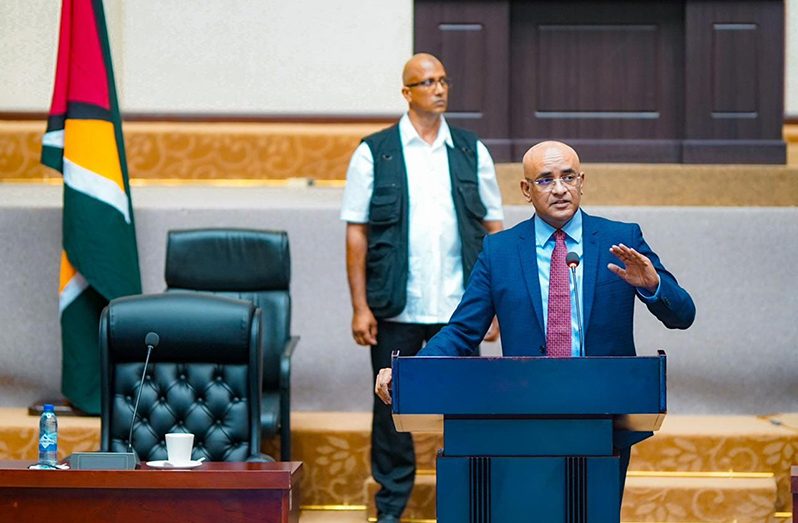–under new, reformed SLED programme
By Tamica Garnett
APPROXIMATELY 5,000 individuals across the country are expected to benefit this year from the Sustainable Livelihood Entrepreneurial Development (SLED) programme under the current administration, after it was re-designed to give out smaller grants through a better accountability system.
The grants under the SLED programme will be part of over $1.8 billion in grants that are being injected back into small businesses across the country.
This was according to Vice-President, Dr. Bharrat Jagdeo, during an interview, on Wednesday, when he addressed issues regarding backlogs of grants for small businesses.
The roll out of the grants will be handled by the Regional Democratic Councils (RDCs) and will take place over the next few months.
“I anticipate that from the SLED programme, you’ll have about 5,000 people receiving the help across the country,” Dr. Jagdeo said.
He added: “We have reformed the programme and reduced the sum so more people can benefit, and we have also prohibited Members of Parliament from getting any money from this grant. We now still have to roll this out across the country. So, if you live in the Berbice Region, Region Three or Region Ten it would be done over the course of the next few months; we just haven’t done it as yet.”
According to Dr. Jagdeo, some distribution of grants has begun in Region Four (Demerara-Mahaica) and Region Seven (Cuyuni-Mazaruni); however, it will be done incrementally across the entire country.
Over the years, the SLED programme had become an infamous point of contention, since, under the previous A Partnership for National Unity/Alliance for Change (APNU+AFC) administration the programme had been riddled with mismanagement, lack of accountability, and several instances of what amounted to “fraud and criminality” in the spending, which were unearthed.
It was under this programme that a number of parliamentarians and government officials under the previous administration benefitted from millions of dollars of grant funding, in many instances without ever setting up the proposed business for which they received the funding.
One APNU Parliamentarian handled as much as $165 million under the pretext of setting up an organisation in the Rupununi.
To avoid this kind of “dubious management” of one person being given multi-millions to handle, under its new dispensation there will be a $200,000 limit per grant, which enables more persons to benefit.
“We cut down on the onerous nature of the application process because you could have easily given this grant like what happened in the past, when $10 million went to one person and only 150 persons would have benefitted for the country. To simplify it, people apply through the regions, applications are reviewed; there’s a screening process that takes place at the region and then they get it,” Dr. Jagdeo explained
He added: “What is happening is now we have allowed the Region to do a survey. Because it’s a small grant, it’s not millions of dollars its $200,000. They [applicants] have to demonstrate that they have a small business and the small business will be, [for example, selling water]. With this grant you might be able to buy stocks. Remember, it’s a small amount of money but for a small business person, $200,000 would mean a lot. They would be able to restock and it would not be too much.”
Launched in 2015, the SLED programme was initially set up with the aim of benefitting single parents and other vulnerable citizens in job creation and business ventures.
The programme provided funding to individual persons or organisations to support entrepreneurial activities, particularly in the areas of agriculture, livestock and apiculture.
A total of $760 million was disbursed under the SLED programme during the APNU+AFC time in government from 2015 to 2020, in increments of $115 million, $40 million, $100 million, $150 million, $250 million and $105 million, respectively.
Under the programme, projects were funded in Regions Two, Three, Four, Five, Six, Seven, Nine and 10. However, despite all of the money being dispersed, to date many of the projects have not even been completed or citizens have not benefitted from it.
In 2021 a special audit was launched into the management of the programme from 2015 – 2020.
The capital programme was first catered for under the then Ministry of Communities, but was later transferred to the then Ministry of Social Protection. In 2020, it was then transferred to the Ministry of Local Government and Regional Development through which it is currently being administered.




.png)









